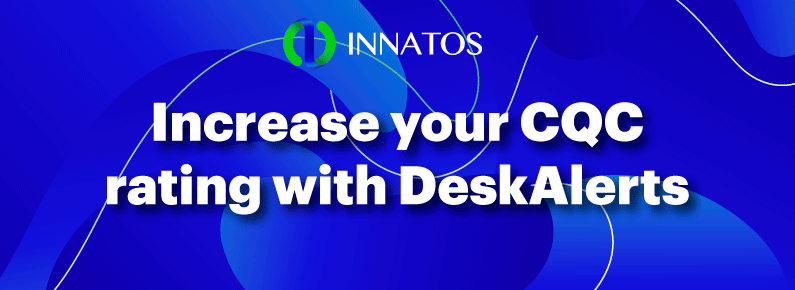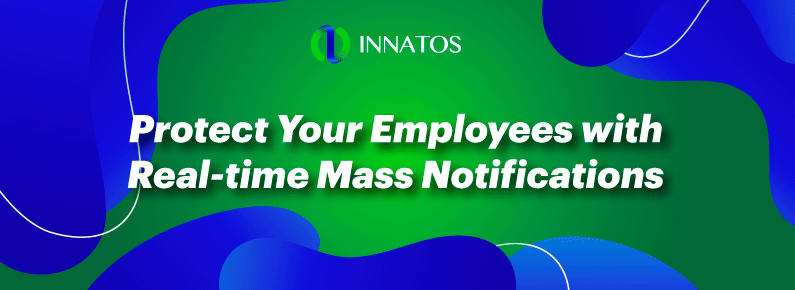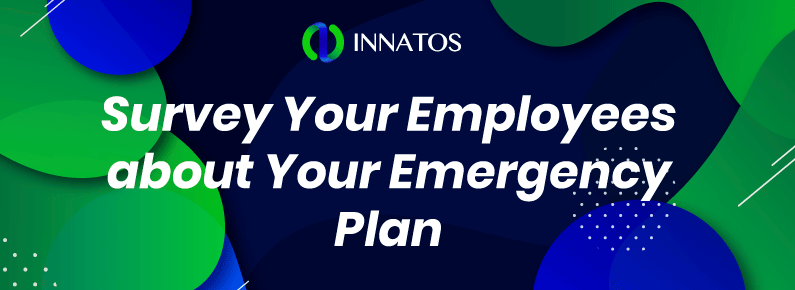Increase your CQC rating with DeskAlerts
Increase your CQC rating with DeskAlerts. If you’re looking to improve your healthcare organization’s CQC rating, consider investing in DeskAlerts – an internal communication software solution that is proven to improve information flow in hospitals and healthcare organizations, and subsequently improves patient outcomes. The UK Government requires that all care providers show the public how well they are performing. This is done via a rating system carried out by the Care Quality Commission (CQC) that helps people to compare services and make an informed choice about their care options.
Health and social care services are given four different CQC ratings – these are “outstanding”, “good”, “requires improvement” and “inadequate”.
If your organization hasn’t fared so well, introducing DeskAlerts to your environment could help to increase your ratings in the future.
 We are a software development company, headquartered in the United States of America providing internal communication solutions for 13 years to clients around the globe, including many NHS hospitals in the United Kingdom.
We are a software development company, headquartered in the United States of America providing internal communication solutions for 13 years to clients around the globe, including many NHS hospitals in the United Kingdom.
We know that the healthcare sector has unique challenges it has to work within ensuring information flows properly. This includes staff working around the clock, across different locations, with different specialties, and not always necessarily having access to email or intranet pages.
DeskAlerts is a software solution that works by sending pop-up notifications directly to computer screens, bypassing the email system. The notifications are designed to be intrusive and appear no matter what other programs are in use at the time by the employee, and appear even if a screen is locked or in screensaver mode.
You can send notifications about any critical information you need staff to see and act on. You can also send RSVPs, polls, quizzes and surveys, allowing for two-way communication.
DeskAlerts has helped NHS UK hospitals and private clinics to successfully raise their CQC ratings in several scenarios.
- Sending out notifications about specialist training opportunities in a more visible way, increasing participation in the training. You can give participants the opportunity to ask questions about the training via the survey function. You can send to custom audiences such as individual groups, departments, or buildings – or send to the entire organization.
- It’s easy to determine who hasn’t answered the questions, and you can keep sending the alert until they finally respond. This approach has already helped our clients to increase the success of their training and get grants for development. Not only do they get the extra budget, but they avoid unwanted restrictions.
- DeskAlerts can be used to remind people about the mandatory training they need to take. Keep on automatically reminding them in any intrusive manner until everyone takes their courses.
- You can use acknowledgment alerts to ensure your staff complies with all legal requirements, such as filing their MCA and DoLS related documentation when they work with patients.
- Send video alerts to deliver exercise training to patients in therapy programs to improve their outcomes.
- Use DeskAlerts’ screensaver and corporate wallpaper functions to deliver information about general safeguards and checklists on important topics such as infection prevention, management of hazardous substances. These can be tailored to suit individual departments.
- Use the digital signage feature to display instructions for activities such as blood testing in order to reduce waiting times and queues at reception.
- Use scheduled recurring alerts as a partial measure to replace one-on-one staff supervision which frees up management resources.










Leave a Reply
Want to join the discussion?Feel free to contribute!